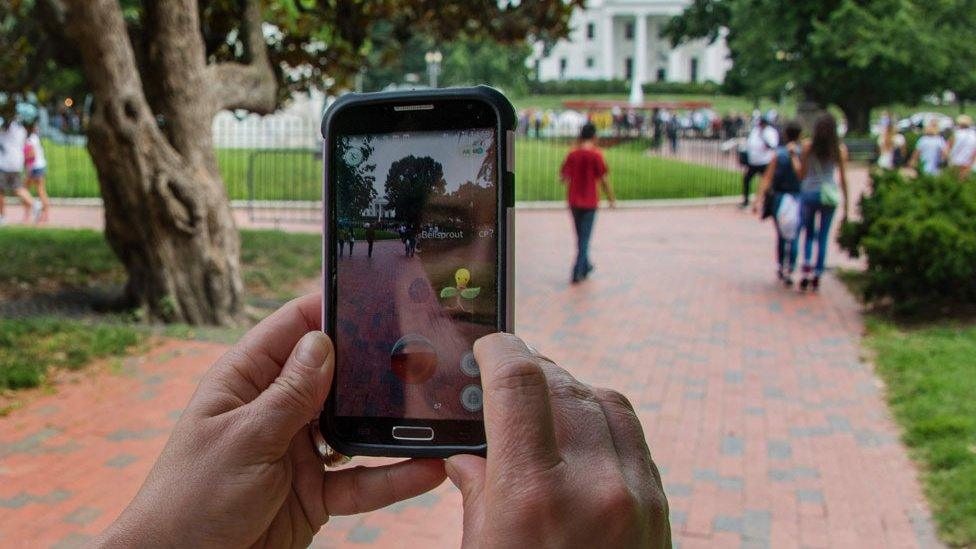Nintendo shares up more than 50% since Pokemon Go release
- Published
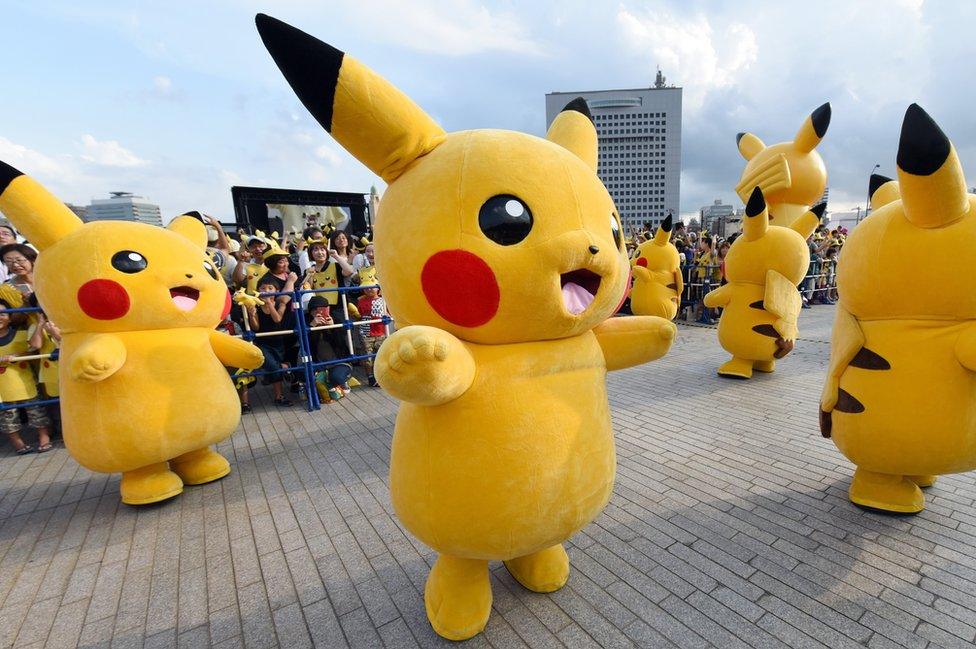
These people are dressed up as Pikachu, a fast-moving Pokemon with electric powers
Shares in the Japanese company Nintendo have seen a sharp rise since the release of the augmented reality game Pokemon Go, gaining more than 50%.
Shares closed 16% higher on Thursday, making an overall increase of 56% since the release - putting Nintendo's market value at 3.6tn yen ($34bn; £25.7bn).
Pokemon Go players search locations in the real world to find virtual Pokemon creatures on their smartphone screens.
The game has become a global phenomenon since its release.
It topped the app store download chart on both iPhone's App Store and Google Play just days after its initial release in the US, Australia and New Zealand.
Nintendo shares had already started the week with a 25% jump on Monday alone.

Pokemon stories
An American woman found a dead body while she was looking for a Pokemon in a river near her home. Police said the man had died within the last 24 hours and no foul play was suspected.
Four people were arrested, external after they used the game to lure players to remote places and then rob them at gunpoint. In response, the makers of Pokemon Go have said people should "play with friends when going to new or unfamiliar places" and "remember to be safe and alert at all times".
The anti-gay Westboro Baptist Church in the US is the location of a "gym" in the game, and players planted a pink "Clefairy" Pokemon, external called Love is Love there. The church has responded with a series of social media posts calling the Pokemon a sodomite.
There have also been plenty of reports of people falling over and grazing or cutting themselves because they're not paying attention to what's in front of them while they play.

The Pokemon creatures first emerged in the 1990s on Nintendo's Game Boy device.
For the new game, Nintendo has partnered with US-based developer Niantic and the Pokemon Company, which owns the rights to the characters.
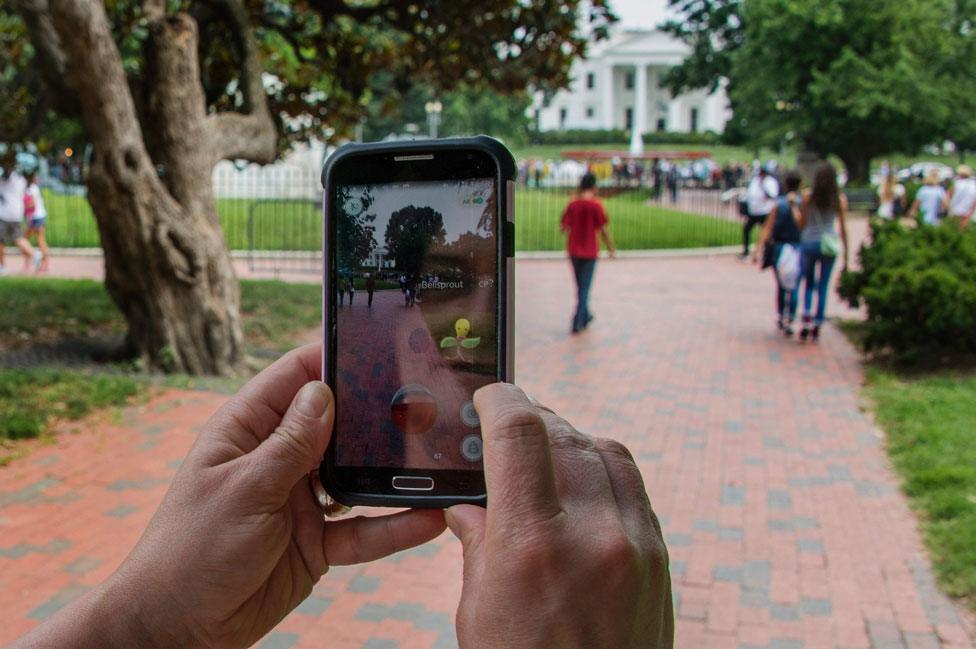
A Pokemon player searches the square in front of the White House
Nintendo, which is also behind the iconic Super Mario game, has traditionally relied on sales of its gaming consoles.
However, sales of those have been slowing in recent years as more gamers move online and onto portable devices.
Analysts have long criticised the company for lagging rivals such as Sony and being late in catering to the growing smartphone market.
- Published14 July 2016
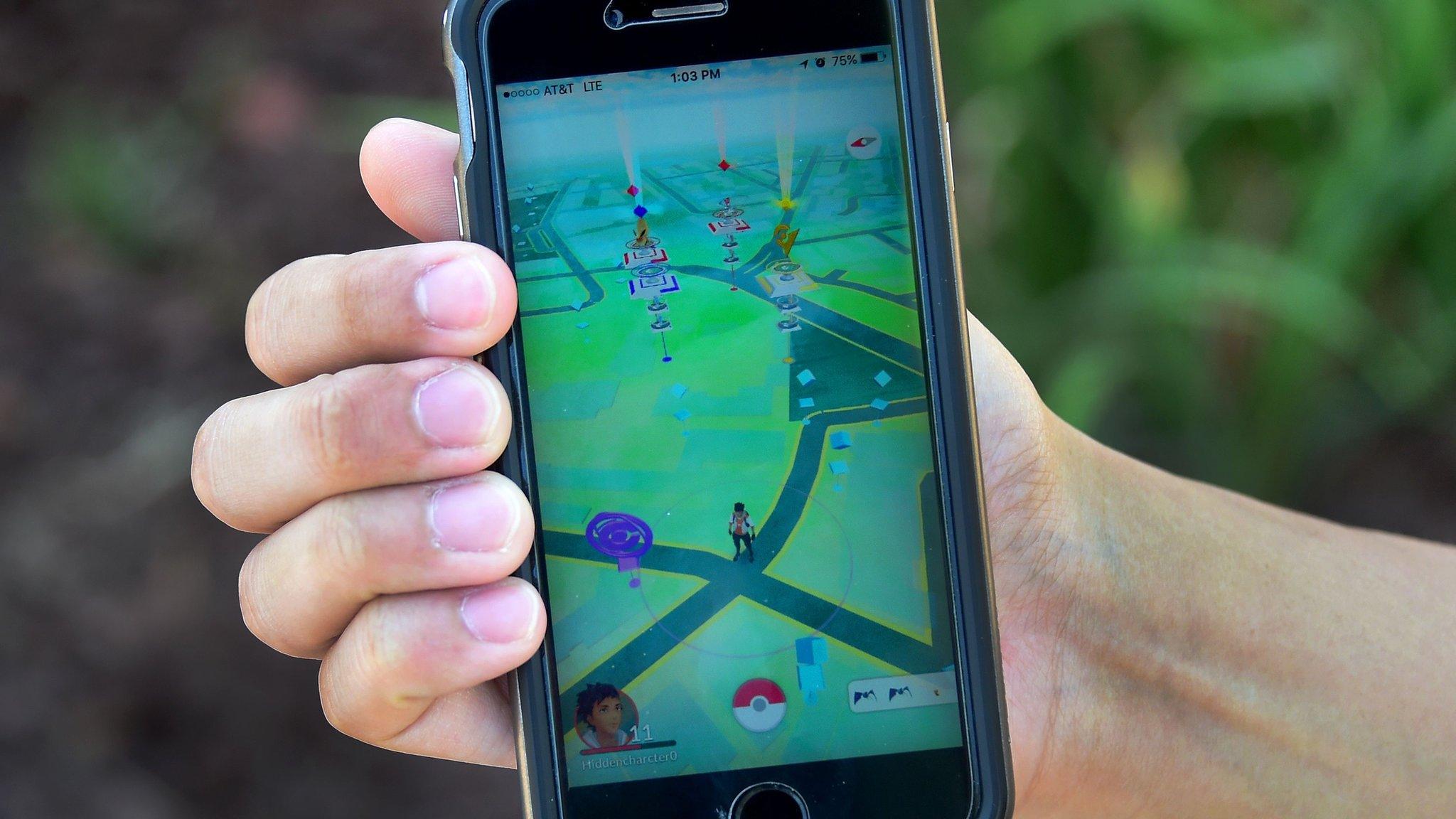
- Published13 July 2016
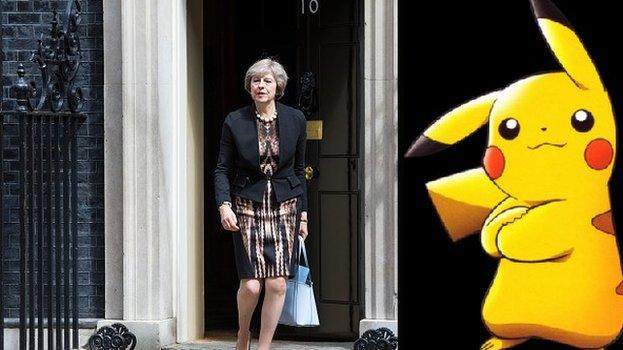
- Published12 July 2016

- Published13 July 2016
